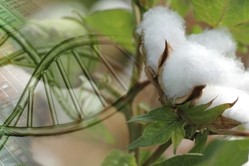Sponsored Content
The Dark Side of Imitation – Counterfeit Alcohol and the Fight for Safety
The Transported Asset Protection Association (TAPA) has published a white paper on the scourge of counterfeit alcohol in response to a string of high-profile incidents that have claimed hundreds of lives.
The document details some of the most notorious incidents in recent years and explains how a brand protection standard (BPS) developed by TAPA Asia Pacific (TAPA APAC) can strengthen the supply chain against counterfeit goods by encouraging logistics companies to "design out" vulnerabilities. Read more
Sponsored Content
The Dark Side of Imitation – Counterfeit Alcohol and the Fight for Safety
The Transported Asset Protection Association (TAPA) has published a white paper on the scourge of counterfeit alcohol in response to a string of high-profile incidents that have claimed hundreds of lives.
The document details some of the most notorious incidents in recent years and explains how a brand protection standard (BPS) developed by TAPA Asia Pacific (TAPA APAC) can strengthen the supply chain against counterfeit goods by encouraging logistics companies to "design out" vulnerabilities. Read more
Press Releases
-
》 Energous introduces battery-free e-Sense tag, establishing first end-to-end wireless power platform for the ambient IoT
-
》 TrusTrace launches 4th industry playbook: A new framework to streamline data collection to comply with industry regulations and de-risk supply chains
-
》 Crane Authentication unveils InsightPulse: A discreet, smartphone-enabled authentication system
-
》 Antares Vision Group partners with Siempharma to enter pharma labeling equipment market with automatic unit for cylindrical containers
Partners




 Applied DNA Sciences (APDN) has reported a sharp increase in quarterly revenues on the back of strong growth for its DNA markers.
Applied DNA Sciences (APDN) has reported a sharp increase in quarterly revenues on the back of strong growth for its DNA markers.